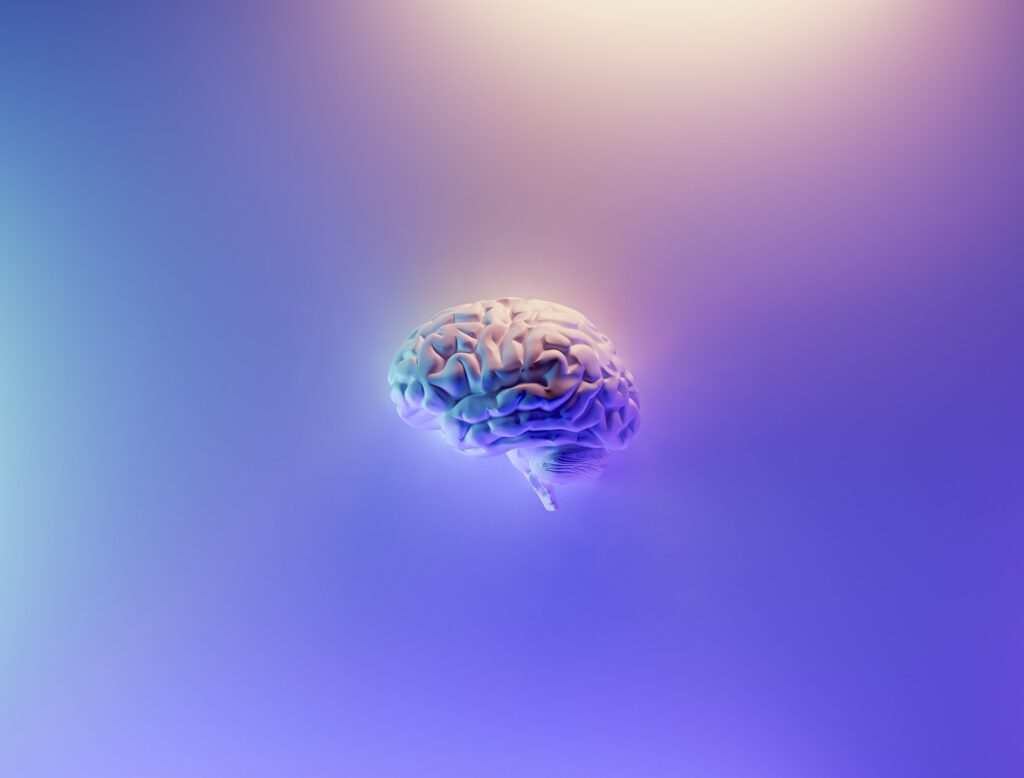
Anthocyanins and Brain Health: 5 Powerful Mechanisms
Some Posts On Our Site May Contain Affiliate Links
Table of Contents
What is the role of anthocyanins and brain health?

Anthocyanins are a group of naturally occurring compounds known as flavonoids, which are responsible for the red, purple, and blue colors in many fruits, vegetables, and flowers.
They are widely distributed in nature and are commonly found in foods like berries (e.g., blueberries, strawberries, raspberries), grapes, cherries, black currants, red cabbage, and eggplants.
Anthocyanins have gained attention for their powerful health benefits, including their effects on brain health.
Why Should We Take Care of Our Brains as We Age?

Brain health is of paramount importance as we age because it directly impacts our overall well-being and quality of life. The brain is the control center for every aspect of our existence, from thinking and memory to emotions and physical coordination.
As we grow older, the brain undergoes natural changes, and the risk of cognitive decline, neurodegenerative diseases like Alzheimer’s and Parkinson’s, and other age-related brain issues increases.
Most studies indicate that brain volume starts to change in your 30s or 40s; however, it’s in your 60s or 70s that increased atrophy, and changes in the brain happen.
According to Dr. Charles Bernick, staff neurologist at Cleveland Clinic Lou Ruvo Center for Brain Health “We know that normally with age, brain volume declines in a somewhat predictable manner. The weight of the brain declines 5% per decade after the age of 40,” he continues. “That’s due to a combination of loss of cells, degeneration of fibers, reduction in volume of the cells themselves.”
Maintaining good brain health can help preserve cognitive function, memory, and decision-making abilities, enabling us to stay independent and engaged in our daily activities for years to come.
Furthermore, a healthy brain is essential for maintaining emotional well-being, managing stress, and nurturing social connections. It’s the cornerstone of a fulfilling and active life in our later years, emphasizing the significance of taking proactive steps to support and protect our brain health as we age.
What is oxidative stress exactly?
Oxidative stress is a physiological imbalance between the production of harmful reactive oxygen species known as free radicals and the body’s ability to counteract or repair their damaging effects.
In the context of the brain, oxidative stress can have a profound impact as it leads to the damage of important biomolecules like DNA, proteins, and lipids.
Anthocyanins are believed to improve brain health through 5 key mechanisms:
1. Antioxidant Activity:
Anthocyanins are powerful antioxidants that can help combat oxidative stress and reduce the damage caused by free radicals in the brain.
These antioxidants protect cells and tissues from damage caused by harmful molecules called free radicals. Free radicals are highly reactive and can harm cells by stealing electrons from other molecules, which can lead to oxidative stress and damage to DNA, proteins, and cell membranes.

Antioxidants neutralize these free radicals by donating electrons or preventing their formation, helping to maintain the body’s overall health and reduce the risk of various diseases, including cancer, cardiovascular disease, and aging-related conditions.
A diet rich in fruits, vegetables, and other sources of antioxidants can be beneficial for combating oxidative stress and promoting well-being.
Anthocyanins are potent antioxidants and have been shown to help combat oxidative stress and reduce the damage caused by free radicals in the brain. Oxidative stress is implicated in the aging process and various neurodegenerative diseases, such as Alzheimer’s disease and Parkinson’s disease.
This damage can harm brain cells and their structural integrity, impairing their normal functioning. Oxidative stress is closely linked to the aging process and various neurodegenerative diseases, including Alzheimer’s and Parkinson’s, where it can accelerate the progression of these conditions.
This emphasizes the importance of antioxidants and a healthy lifestyle in mitigating oxidative stress and supporting brain health, particularly as we age.
2. Anti-inflammatory Properties:
Chronic inflammation is associated with various brain disorders, and anthocyanins have been found to possess anti-inflammatory properties.
Inflammation can significantly impact brain health. Chronic inflammation is associated with neurodegenerative diseases such as Alzheimer’s and Parkinson’s, cognitive decline, and the disruption of the protective blood-brain barrier.

Not only can chronic inflammation induce oxidative stress, damage brain cells, and trigger neuroinflammation, but it is also linked to psychiatric disorders like depression and schizophrenia.
While acute inflammation is a natural response to injuries or infections, chronic, low-level inflammation, often driven by lifestyle factors like an unhealthy diet and sedentary behavior, can be detrimental to the brain.
Maintaining brain health requires managing chronic inflammation through a balanced diet, regular exercise, and stress reduction, as it plays a crucial role in overall well-being as we age.
By reducing inflammation, anthocyanins can help protect brain cells and support overall cognitive health.
3. Improved blood flow:
Some studies suggest that anthocyanins can enhance blood circulation in the brain. Better blood flow can provide the brain with more oxygen and nutrients, supporting cognitive function and reducing the risk of cognitive decline.

Maintaining good blood flow to the brain is of paramount importance as we age. The brain is a highly metabolic organ that relies on a continuous and well-regulated supply of oxygen and nutrients delivered through the bloodstream.
As we grow older, changes in blood vessels and circulation can occur, potentially leading to reduced blood flow to the brain. This diminished blood flow can have adverse effects, including cognitive decline, impaired memory, and an increased risk of neurodegenerative diseases.
It underscores the critical role of healthy cardiovascular habits, regular exercise, and a balanced diet in supporting optimal blood flow to the brain. These practices not only nourish the brain but also reduce the risk of stroke, cognitive impairment, and age-related cognitive decline, allowing individuals to maintain their cognitive function and quality of life as they age.
4. Neuroprotection:
Anthocyanins may have neuroprotective effects, meaning they could help shield brain cells from damage and promote their survival. This can be particularly important in preventing neurodegenerative diseases.
Neuroprotection is of utmost importance as we age because it plays a pivotal role in preserving the health and function of our nervous system, particularly the brain.
Aging is accompanied by a natural decline in the brain’s ability to repair and regenerate, making it more susceptible to damage and neurodegenerative conditions. Neuroprotection strategies, such as a healthy lifestyle, adequate nutrition, and cognitive stimulation, are crucial in safeguarding brain cells, maintaining cognitive function, and reducing the risk of conditions like Alzheimer’s and Parkinson’s disease.
Additionally, neuroprotection can help mitigate the effects of oxidative stress, inflammation, and other factors that contribute to cognitive decline and maintain the overall quality of life as we advance in age.
It underscores the importance of adopting habits and behaviors that promote brain health and resilience throughout the aging process.
5. Cognitive Function:
There is evidence to suggest that anthocyanins may have a positive impact on cognitive function. Research has shown that regular consumption of foods rich in anthocyanins, such as blueberries, may improve memory and other cognitive abilities.
Supplement Spotlight:
ELYSIUM MATTER
Matter contains a tri-vitamin complex that was developed with Oxford and is clinically proven and patented to slow the brain volume loss that happens as we age. Doctors and world-renowned researchers recommend Matter for long-term brain health.
Developed with the University of Oxford: The Science Behind Matter
You May Also Enjoy
NMN Supplement: Choosing Wisely and What to Look For




